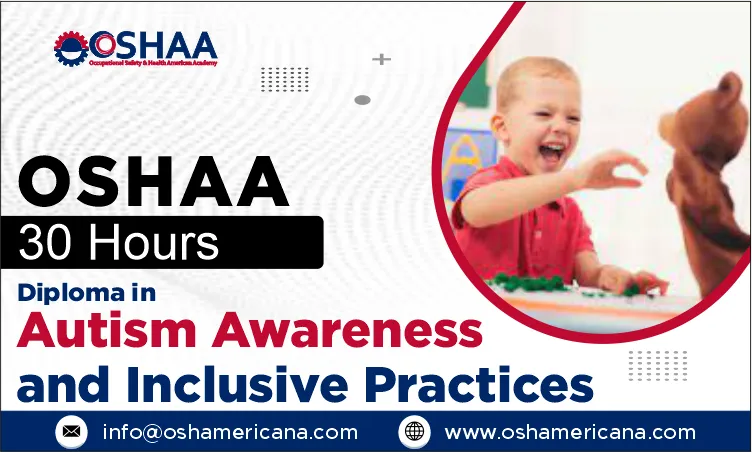Lead ISO Audits and Train Others Effectively with OSHAA Internal Auditor Certification
Advance your career with the OSHAA ISO Internal Auditor Train the Trainer course, a professional program that combines advanced auditing expertise with effective training skills. This course equips participants to become highly competent ISO internal auditors while also gaining the ability to teach auditing practices and compliance standards with confidence and authority.
Learners develop a deep understanding of key ISO standards, including ISO 9001 (Quality Management), ISO 14001 (Environmental Management), and ISO 45001 (Occupational Health & Safety). They gain practical skills to plan, conduct, and evaluate internal audits, identify risks, recommend corrective actions, and ensure regulatory compliance.
A key focus of the program is training excellence. Participants master adult learning principles, instructional design, and presentation techniques, enabling them to deliver engaging, interactive, and effective training sessions. The course ensures that graduates can explain complex ISO concepts clearly, motivating teams to achieve compliance, improve processes, and foster a culture of safety and continuous improvement.
Certification through this program enhances professional credibility, opens pathways to roles such as internal auditor trainers, compliance officers, and quality consultants, and equips participants to lead audits and training programs that strengthen organizational performance, compliance, and operational excellence worldwide.
OSHAA ISO Internal Auditor Train the Trainer
To enroll in the OSHAA ISO Internal Auditor Train the Trainer course, learners are expected to meet the following criteria:
- Age Requirement: Applicants must be at least 18 years old to register for the OSHAA ISO Internal Auditor Train the Trainer course, ensuring they possess the maturity and responsibility required to engage in advanced auditing and training activities.
- Educational Background: A minimum of a high school diploma or equivalent qualification is required for enrollment in the OSHAA ISO Internal Auditor Train the Trainer program. However, having higher education in fields such as quality management, business administration, occupational health and safety, or related disciplines is considered an advantage, as it provides additional context and understanding of ISO standards and compliance frameworks.
- Work Experience: Prior experience in auditing, compliance, or quality management is highly recommended for participants of the OSHAA ISO Internal Auditor Train the Trainer course. While not always mandatory, practical exposure to internal audits or organizational compliance systems significantly enhances the learning experience.
- English Proficiency: Learners enrolling in the OSHAA ISO Internal Auditor Train the Trainer course must have the ability to read, write, and speak English proficiently. Strong English proficiency is essential for understanding ISO standards, comprehending course materials, and effectively applying auditing and training methodologies.
Meeting these eligibility requirements ensures that learners are prepared to fully benefit from the OSHAA ISO Internal Auditor Train the Trainer course. This foundation enables participants to strengthen their auditing expertise, enhance compliance knowledge, and develop the professional skills necessary to become successful trainers in ISO internal auditing.
Study Units
Learning Outcomes
The Learning Outcomes of the OSHAA ISO Internal Auditor Train the Trainer course are designed to provide participants with advanced auditing expertise, compliance knowledge, and safety leadership abilities. This course equips learners with the professional competencies required to master ISO standards, conduct effective internal audits, and deliver high-quality training that promotes organizational compliance and safety excellence on a global scale. By the end of the program, learners will possess the skills to not only conduct internal audits but also train others to uphold international standards, ensuring long-term professional development and workplace improvement.
Introduction to ISO Standards and Internal Auditing
- Gain a comprehensive understanding of the purpose, structure, and global significance of ISO standards.
- Learn the principles and processes of internal auditing, including planning, execution, and reporting.
- Understand the role of internal auditing in driving compliance, continuous improvement, and organizational efficiency.
Advanced Internal Auditing Techniques
- Acquire in-depth skills to perform systematic, risk-based internal audits aligned with international best practices.
- Develop the ability to identify non-conformities, assess corrective actions, and evaluate compliance effectiveness.
- Learn to analyze audit data to generate insights that contribute to stronger organizational decision-making and performance.
Training Methodologies and Adult Learning Principles
- Understand adult learning theories and their application in professional training environments.
- Learn how to design training sessions that are interactive, practical, and engaging for diverse audiences.
- Acquire the ability to adapt teaching approaches to various learning styles and professional backgrounds.
Developing Effective Training Materials
- Gain the skills to design clear, structured, and comprehensive training manuals, guides, and presentations.
- Learn to incorporate real-world case studies and practical examples to strengthen participant understanding.
- Develop competency in creating training resources that meet both ISO standards and organizational compliance requirements.
Communication and Facilitation Skills
- Build strong communication abilities to present auditing concepts with clarity and confidence.
- Learn facilitation techniques that encourage participation, collaboration, and effective knowledge transfer.
- Enhance interpersonal skills to manage discussions, address questions, and resolve conflicts during training sessions.
Managing and Evaluating Training Programs
- Acquire the ability to plan, organize, and deliver structured ISO training programs within organizations.
- Learn methods for monitoring training effectiveness and measuring participant learning outcomes.
- Gain expertise in evaluating and improving training strategies to ensure ongoing compliance and professional growth.
Ethics and Professionalism in Auditing and Training
- Understand the importance of integrity, objectivity, and confidentiality in auditing and training practices.
- Learn to apply ethical decision-making when faced with challenges in audit or training environments.
- Develop professionalism that builds trust, credibility, and respect as an ISO internal auditor and trainer.
Emerging Trends and Future Developments
- Stay updated with the latest advancements and changes in ISO standards and auditing practices.
- Learn how digital tools and technologies are transforming auditing and training methodologies.
- Acquire insights into global compliance trends that shape the future of organizational safety and quality management.
By completing the OSHAA ISO Internal Auditor Train the Trainer course, participants will be equipped to lead internal audits with authority, develop and deliver effective training programs, and foster a culture of compliance and safety within their organizations. This course prepares learners to take on leadership roles in auditing and training, ensuring they contribute to regulatory compliance, continuous improvement, and the establishment of a strong safety culture across industries worldwide.
The OSHAA ISO Internal Auditor Train the Trainer course offers a wide range of benefits designed to enhance the knowledge, skills, and professional capabilities of participants. This advanced program is relevant for industry professionals, organizations, and stakeholders who are committed to achieving compliance, improving workplace performance, and building strong safety and quality cultures. On a global scale, the OSHAA ISO Internal Auditor Train the Trainer course supports regulatory compliance, professional growth, and leadership development, equipping learners with the expertise to both conduct internal audits and train others effectively in accordance with ISO standards and OSHA requirements.
- Comprehensive Knowledge of ISO Standards – Gain in-depth understanding of ISO 9001, ISO 14001, and ISO 45001 to ensure compliance and train others effectively.
- Advanced Internal Auditing Skills – Learn to plan, conduct, and report internal audits professionally and accurately.
- Regulatory Compliance and Legal Protection – Understand OSHA and ISO requirements to reduce legal risks and ensure organizational resilience.
- Professional Development and Career Advancement – Earn globally recognized certification for roles like ISO trainer, compliance consultant, or lead auditor.
- Enhanced Training and Teaching Competence – Design, deliver, and evaluate ISO training using adult learning principles and effective communication.
- Stronger Leadership and Communication Skills – Build confidence to lead sessions, engage participants, and influence workplace culture.
- Improved Workplace Safety and Risk Management – Identify risks, implement corrective actions, and promote safer work environments.
- Operational Efficiency and Cost Savings – Detect inefficiencies and non-conformities to streamline processes and reduce costs.
- Enhanced Worker Productivity and Well-Being – Boost employee engagement, productivity, and adherence to best practices.
- Emergency Preparedness and Response Skills – Prepare organizations for emergencies and integrate risk management strategies.
- Continuous Improvement and Innovation – Use audit findings to drive improvement and integrate emerging best practices.
- Global Recognition and Credibility – Certification is internationally recognized, enhancing professional credibility.
- Building a Culture of Compliance and Safety – Embed safety, compliance, and accountability into organizational culture.
- Effective Program Management Skills – Plan and manage training initiatives that are relevant, impactful, and results-driven.
- Future-Ready Skills for Evolving Standards – Stay prepared for changes in ISO standards and compliance practices. As ISO standards and compliance requirements evolve, the course ensures participants remain updated with the latest developments. This future-oriented approach prepares professionals to adapt and lead change in dynamic industries.
Completing the OSHAA ISO Internal Auditor Train the Trainer course provides participants with the skills to strengthen compliance, improve workplace safety, and deliver high-quality training programs that benefit both organizations and individuals. The knowledge and competencies gained not only support career advancement but also contribute to building resilient, efficient, and globally compliant organizations.
The OSHAA ISO Internal Auditor Train the Trainer course is designed for professionals who play a critical role in auditing, compliance, and organizational training.
- Internal auditors ensuring compliance with ISO standards and workplace safety protocols
- Enhance auditing skills through the OSHAA ISO Internal Auditor Train the Trainer course
- Develop instructional abilities to train other auditors within the organization
- Support OSHA compliance and strengthen workplace safety culture
- Improve operational efficiency through effective internal controls
- Compliance officers overseeing regulatory adherence and organizational standards
- Learn to interpret ISO requirements and integrate them into company practices
- Gain advanced training methodologies to guide teams on compliance issues
- Align auditing and training with OSHA standards
- Reduce legal risks and enhance organizational credibility
- Quality and safety managers responsible for product quality, employee safety, and compliance
- Deepen understanding of ISO frameworks and auditing practices
- Develop leadership and communication skills for effective staff training
- Ensure continuous improvement and reduce workplace incidents
- Promote adherence to OSHA requirements and ISO guidelines
- Trainers and educators responsible for workforce knowledge transfer and competency building
- Learn to design, deliver, and evaluate ISO-related training programs
- Apply adult learning principles and interactive teaching methodologies
- Incorporate OSHA and ISO compliance into training sessions
- Contribute to safer workplaces and improved organizational performance
- Consultants and external auditors advising on compliance and quality management
- Strengthen expertise in auditing and professional training methodologies
- Offer customized training programs to clients for added value
- Support global compliance standards and enhance consultancy effectiveness
- Help organizations maintain long-term safety, quality, and operational efficiency
- The OSHAA ISO Internal Auditor Train the Trainer course equips professionals with advanced auditing knowledge, training skills, and globally recognized certification, enabling them to lead, educate, and implement compliance strategies that strengthen OSHA adherence, ISO standards, and overall operational excellence.







